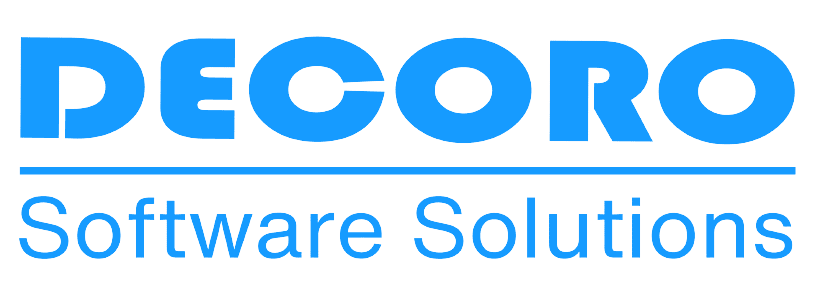The emergence of the digital revolution altogether changed the script of how different diligence runs their business. Healthcare assiduity is one of those which are immensely impacted by this digital period. Over the last many times, mobile technology in the healthcare sector is appertained to as mHealth. Healthcare mobile application development companies are providing various healthcare trending apps through which one can easily connect its mobile, smartwatches & other devices for remote monitoring of health.

Over the last few years, healthcare mobile app development has unprecedentedly accelerated its speed. As per Fortune Business Insights, in 2020, the market size of global mHealth apps was valued at USD 24.93 billion & is supposed to increase from 2021 to 2028 at a composite periodic growth rate (CAGR) of 34.8. Now, you can imagine how mobile operations are expanding their reach in the healthcare sector.
A couple of years back, we were even unable to envision this much quick change in the healthcare industry which is A couple of times back we were indeed unfit to fantasize about this important quick change in the healthcare assiduity which isn’t only confined to the healthcare mobile operation development but also involves the constant data security enhancements in the field.
In recent years, we have seen a paradigm shift in the healthcare industry with the advancement of technology, specifically mobile solutions.
Therefore, mobile technology is ushering in a new era of healthcare & fundamentally altering how the medical field is operating. We have already witnessed how medical treatment is rendered through a combination of variables of monitor technology like telemedicine, home diagnosis, etc.
Advantages of Healthcare App
Healthcare providers have understood the significance of treating patients remotely. Consequently, A lot of startups are venturing into the mobile app development domain to come up with innovative mobile-based solutions for enhancing the healthcare ecosystem.
Moreover, there is a rising trend amongst medical organizations to heavily invest in healthcare mobile application development.
Increased Accessibility for Patients
With the COVID-19 outbreak, telehealth administrations are turning out to be considerably much more well-known which in turn contributes to the communication expansion between the doctor & the patient than ever before.
With the rise in healthcare app development & smartphone usage, doctors’ virtual consultation for patients is possible when a physical visit to the hospital is not possible for them. This doctor-on-call facility reduces the visiting cost to hospitals.
Moreover, One of the most significant achievements of the healthcare sector is the remote healthcare facility for patients that allows them to get care whenever & wherever they need it. Also, it allows the patient’s “care ecosystem” to know & communicate the necessary stuff about their patient. The patient, family members, home health nurses, caregivers, physical or mental therapists, etc. come under the care ecosystem.
Remote Monitoring
New-age mobile apps are seamlessly integrated with smartphones & the sensors that are in these mobile devices are used to monitor & focus on improving people’s health & well-being.
Patients are now more engaged in their own care than ever before. Every other healthcare app development company is now launching mHealth apps & wearables which put the power in the patient’s hands to monitor, review, analyze & act according to their health data.
As per Business Insider Intelligence’s research, approximately more than 80% of customers like to wear fitness technology-enabled wearables.
Increased Accuracy
Maintaining an organized system in the case of the paper document is quite difficult, and the chances of mistakes occurring are which is again hard to find. Thankfully, mobile technology in the healthcare industry boosts accuracy across the whole organization.
With digitized records, things get improved. Keeping accurate patient records is now possible with the use of smartphones & tablets. A digitized system can easily catch the error & rectify it, which ultimately increases the accuracy in every step.
Mobile EHR & Billing
Consumer healthcare transactions are also supported by numerous mobile-based payment applications. Many enterprise mobile applications are used for Electronic Health Records & billing systems that make things easier for physicians & billers. Enterprise mobile applications help to maintain more reliable medical records so that patients get the correct reimbursement for their medical expenses. Through mobile devices, few EHR systems have secure access to patient charts.
In 2020, a survey conducted by national electronic health records reveals that 89% of physicians are using an EHR or EMR system.
Skills development insights based on LinkedIn data
With the help of this, the business uses job listing and usage trends to highlight increasing interest and demands. It also shines the light on emerging pathways and opportunities. It also showcases the specific elements that are required to take the next steps.
Challenges of mHealth Technology
Even after a lot of advantages due to the rise in mobile app development, still, there are a few challenges like security breaches that need to be fixed.
cybercrimes are multiplying exponentially & become quite evident in the healthcare industry. As per a report by Verizon, the most popular target among hackers is the healthcare industry at 15%.
A feasible solution to these security breaches & cybercrimes is reliability towards secure cloud-based technology.
Future of mHealth Technology
mHealth technology is not going anywhere so, the number of people’s demand who manage & deliver advanced healthcare mobile applications is also increasing. In fact, the need for enterprise apps in the healthcare industry is becoming more & more prevalent with the advancement of technology & time.
Summering It
Mobile technology gives an incredible opportunity to the healthcare sector to invent brand new ideas for minimizing costs while providing better services for caring for patients. Mobile technology is swiftly changing healthcare delivery with the help of telemedicine, mobile computing carts, wearables, enterprise mobile applications, etc
Does your hospital come under those that leverage these technologies to benefit the patients?

